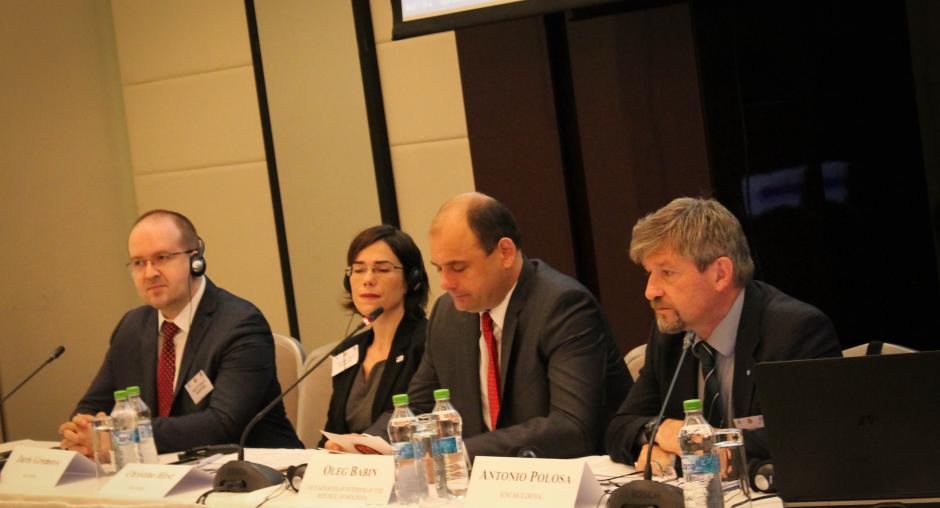Good practices in migrant integration focus of OSCE/ODIHR event in Chisinau

Good practices in the integration of migrants were exchanged and discussed at an international conference co-hosted by the OSCE Office for Democratic Institutions and Human Rights (ODIHR) in Chisinau on 17 and 18 May 2017.
The event, held in co-operation with Moldova’s Interior Ministry, brought together 65 participants, mostly officials responsible for migrant integration issues from Armenia, Austria, Bulgaria, the Czech Republic, Georgia, Estonia, Finland, Latvia, Moldova, Norway, Poland, Portugal, Romania and Ukraine. Many of these countries have faced increased migration flows in recent years and are working to enhance institutional policies and responses.
“This conference is part of our efforts to support OSCE participating States in facilitating the integration of migrants into host societies,” said Christine Hirst, Deputy Head of ODIHR’s Democratization Department. “OSCE participating States have acknowledged that successful integration policies, respecting cultural and religious diversity and contributing to the promotion and protection of human rights and fundamental freedoms, are a factor in promoting stability and cohesion within our societies. Such programmes are becoming increasingly important, and the event today will help support these efforts.”
The discussion focused on issues such as the development of migrant-integration policies and legislation, welcome programmes for migrants, the co-ordination of integration activities and the division of roles among the central governments and local authorities, in line with relevant OSCE commitments, international legal standards, national legislation and good practices.
“The conference is of major importance for the Republic of Moldova, especially in order to ensure the implementation of the Association Agreement with the European Union. Equally, the timing of the event is helpful for us, as we plan to begin modifying the national framework for the integration of foreigners this year, and the conference will facilitate future discussions among all actors involved in the integration process,” said Oleg Babin, Deputy Interior Minister. “We are confident this conference will share good practices and establish new partnerships and help ensure continued co-operation among all OSCE participating States.”
Experts from the Office of the Co-ordinator of OSCE Economic and Environmental Activities, the International Organization for Migration, the UN High Commissioner for Refugees’ Regional Representation for Central Europe, the Council of Europe and the International Centre for Migration Policy Development, as well as representatives from specialist civil society organizations, also participated.
